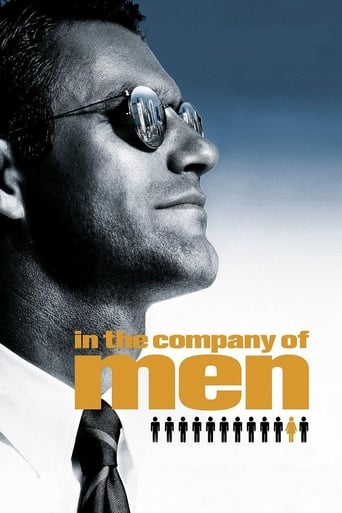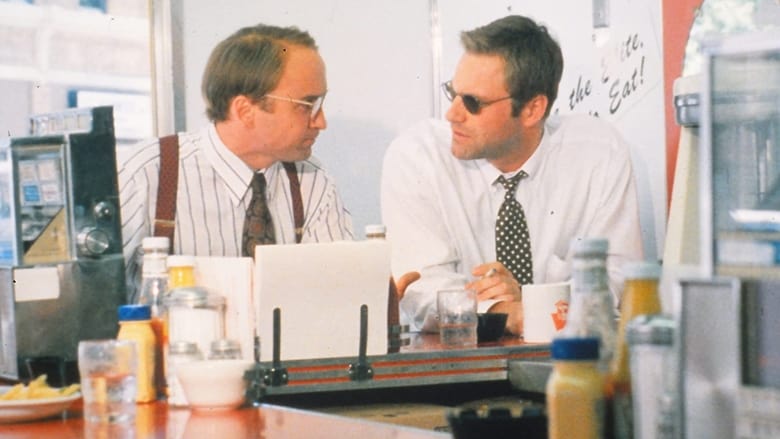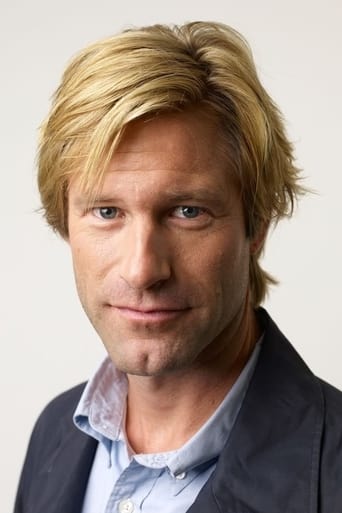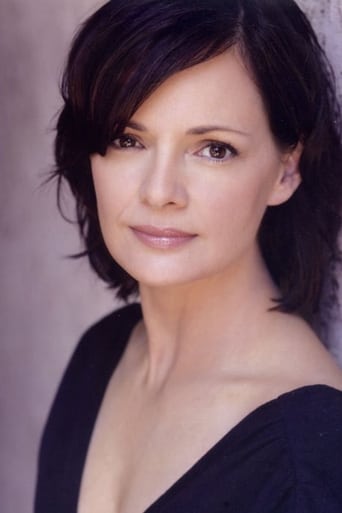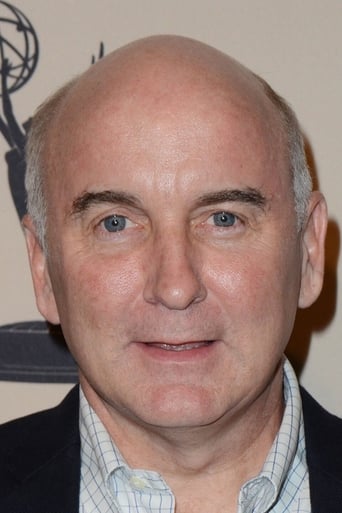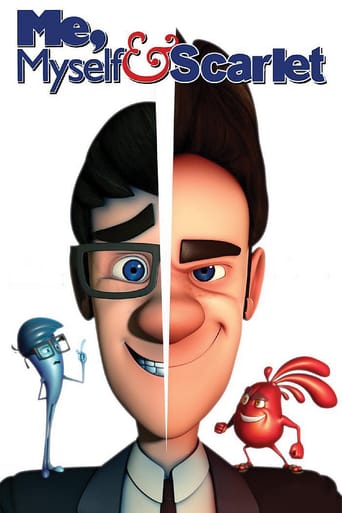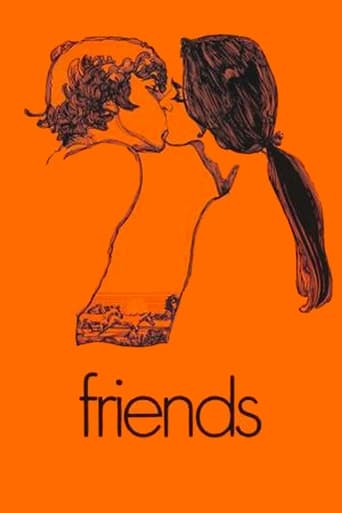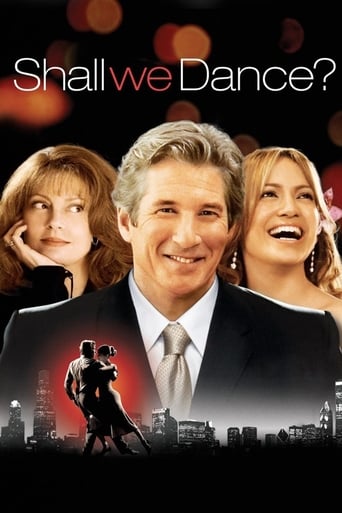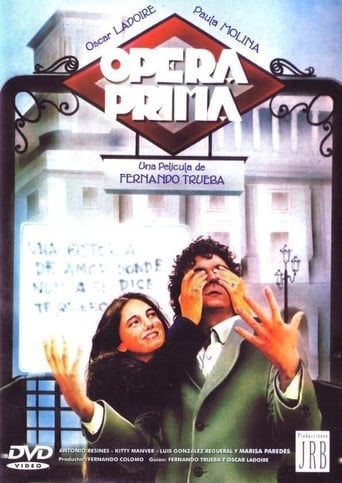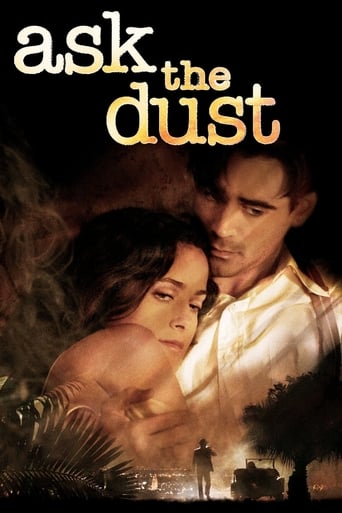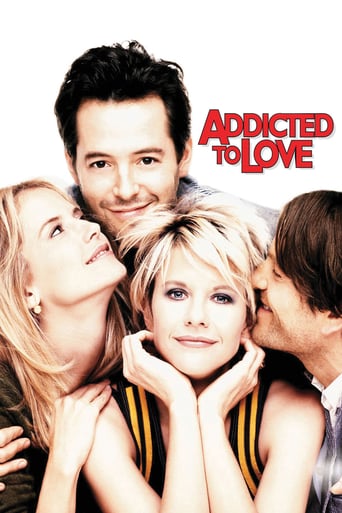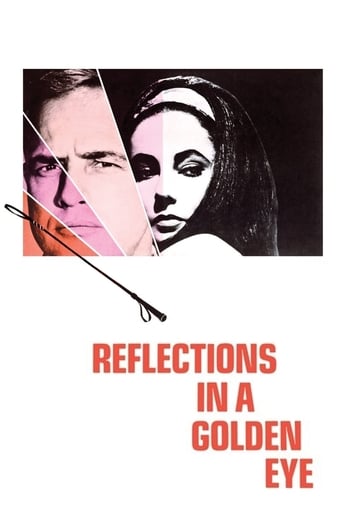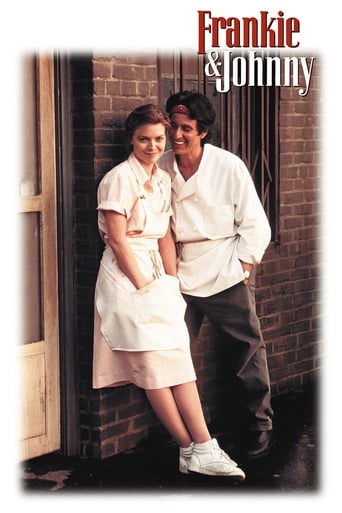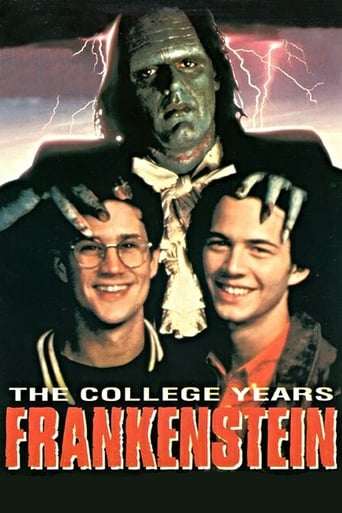In the Company of Men (1997)
Two business executives--one an avowed misogynist, the other recently emotionally wounded by his love interest--set out to exact revenge on the female gender by seeking out the most innocent, uncorrupted girl they can find and ruining her life.
Watch Trailer
Cast


Similar titles
Reviews
So much average
Tells a fascinating and unsettling true story, and does so well, without pretending to have all the answers.
Unshakable, witty and deeply felt, the film will be paying emotional dividends for a long, long time.
There is definitely an excellent idea hidden in the background of the film. Unfortunately, it's difficult to find it.
Two middle management on a business trip talk about their relationships. Howard (Matt Malloy) is a meek sweet guy but Chad (Aaron Eckhart) is a bitter mean-spirited misogynist. Chad convinces Howard to get back at womenkind by finding a vulnerable woman to romance and dump. Christine (Stacy Edwards) is a new temp that fits the plan perfectly and she's deaf.This is a disturbing movie. Chad is a psychopath and it's wonderful. It is original and compelling. Aaron Eckhart puts in a great performance as the douche. It's a shocking debut for Neil LaBute. He has written one of the most cynical disturbed ugliest human being on film that doesn't do anything that's actually illegal. Stacy Edwards is amazingly endearing and the reason why this works so well. But it's Eckhart's heartless performance that puts it over the top.
Neil Labute's "In The Company of Men" stars Aaron Eckhart and Matt Malloy as Chad and Howard, a pair of mid-level corporate executives sent to a boring regional branch for six weeks on a short term project. Frustrated, recently burnt by women, stuck in a career rut and high on corporate testosterone, the duo hatch a plan. "Let's hurt somebody," alpha-male Chad says. Pretty soon they're cooking up a Machiavellian scheme to locate an insecure woman, date her simultaneously, and dump her in the most vicious way possible. The woman they set their sights on is handicapped co-worker Christine. Christine has a speech impediment, but what she says doesn't matter to Chad anyway. Denied a voice, Chad handles her like an object to be acquired, traded, owned and discarded.Labute is heavily influenced by David Mamet. Most of the film finds Chad spewing corporate maxims, strutting about like a Master of the Universe and forcing co-workers to grovel at his feet. Eventually its revealed that Chad's scheming extends even to his "friend" Howard. He's your classic Extreme Sociopath, charming but endlessly manipulative. Everyone's his puppet. And as with Mamet's "workplace flicks", Chad's less a character than an extreme manifestation of a corporate logic whose drive for profit, ownership and expansion slowly infects how everyone around him thinks, acts and feels. Eventually Chad becomes both a norm and standard to aspire to. He's the new hypermasculinist ideal, for whom humiliation, domination, degradation, exploitation and suffering conflate with success. It's not only that aggressive competition in business affects masculinity, romance and sexual behaviour, but that corporate logic magnifies power, the ego and sanctions what is essentially various forms of rape. This stance is the opposite of how contemporary ideology is (mis)perceived, in which "business" is seen to be "neutral" and "mutually beneficial".Chad's a character who's popped up in many films and stories. More interesting is Howard, a fairly meek guy who is corrupted and made to do things even more horrible than Chad. The real world is made up of Howards. Chad's the anomaly, existing always more as spirit or underlying drive.La Bute penned "The Shape of Things" as an attempt to reverse the gender roles of "Company". Arguably his best film, it's also part of a tight trilogy by Labute about people's perceptions of physicality ("Fat Pig", "Reasons to be Pretty", "Shape of Things"). Massive spoilers ahead."The Shape of Things" initially unfolds like a conventional romantic comedy. We're introduced to a dishevelled English Literature student called Adam, played by the always likable Paul Rudd, and an attractive art student called Evelyn (Rachel Weisz). The film then becomes a modern version of Adam's seduction by Eve. Eve ensnares Adam, manipulates him into becoming "fit", "attractive" and "healthy", and then reveals that she has never had romantic feelings toward him; she was merely using Adam as a sort of living art installation, a clay puppet, deceptively sculpting and moulding his mind and body. When Eve reveals her scheme to Adam – she invites him to an art installation in which he is quite literally presented as an exhibited object, her gaze now likened to the masculinist gaze of "In The Company of Men" - he's dumbfounded. Eve's tricked him into getting cosmetic surgery and altering his personality and physique. She's reconstructed him. Treated him as a chunk of malleable flesh.Unlike "Company", we're then invited to work our way through the messy ethical minefield of the victimiser's actions. For while Chad deservedly gets no sympathy in "Company", the relationship in "Things" is much harder to work out. Is Adam now a better person? Was Eve's love, no matter how virtual, beneficial to Adam? Was it ever real? How much authority should be given, or do we give, to artists? How much ethical responsibility do they hold or exercise? How do power relationships within romantic couples overlap with the power we grant artists? Don't Eve's actions echo the sexism of "Compny"? What is acceptable artistic material? Do the means, in art, justify the ends? At what point does creation become manipulation, is manipulation ever justified and at what point does creation destroy (see "Vertigo")? Is Adam now a beautiful work of "art" despite Eve's actions? How do Eve's actions differ from other vampiric artists, who take from and/or abuse outside sources? What does the film say about romance and the lover's desire to alter their partner? Art may be made by monsters, but what about the audience who enjoys? And on and on it goes.The film features a shot of the sentence "There is no morality in art". The quote's by Chinese novelist Han Suiyin, and is stencilled over Eve's art gallery. Throughout the film Eve articulates a similarly postmodern stance: "it's all subjective", she says, "moralists have no place in an art gallery". The firm itself is structured, we think, as an artist's apologia. Its first scene portrays Eve as an iconoclast who thrice breaks the rules, stepping over a rope at a museum, taking an illegal photograph of a sculpture and painting a penis onto a statue which has been censored by uptight museum curators. "You stepped over the line, Miss," curator Adam prophetically says when he firsts meets her. But as Eve makes clear, there should be no lines. We agree with her for much of the film. Afterall, hasn't she liberated Adam? By the film's end, however, we're asked to reconsider Eve's stance. Labute himself reconfigures Han Suiyin's quote. It's not that "there is no morality in art", in the sense that morality should not apply to art, but more literally, that "there is now, no longer, morality in art". Artists have no ethical compass, social feeling or attachment toward world, community or fellowman. Such art doesn't only exist in a vacuum, but is inherently selfish and nihilistic. You know, like Chad. 8/10 - Worth one viewing.
In the Company of Men is a movie that makes one consider his or her actions after watching. The film puts the human conscience to the test by illustrating an exaggerated example of how heartless people can be at times. The film centered around three main characters. Aaron Eckhart played Chad, the arrogant, back-stabbing and ruthless bad guy. Christine, played by Stacy Edwards, was the first of Chad's "victims" of cruelty. Matt Malloy played Howard, a man who thought Chad was his friend.In early portions of the film, the theme appears to be revenge upon women by scorned men. However, as the plot thickens, the true theme of the film reveals itself. It turns out that Chad is planning to hurt anyone he can. The real theme of the film is that some people care about only themselves. Chad is a classic case of one of those people. Throughout the film, he carefully executes a plan to hurt Christine, a deaf woman who has not dated in a long time, due to her handicap. He uses Howard to help in the act of hurting Christine.Chad eventually accomplishes his main goal. However, Howard develops feelings for Christine and tells her that he and Chad had set out to hurt her from the beginning. He also tells her that he has fallen in love with her, although she never gives him a chance to prove that. As a result, Howard ends up being hurt as well.As the plan to hurt Christine comes to fruition, other subplots become evident. Smaller examples of the theme come to light. Chad organizes a series of events that lead to Howard being demoted from his position in the company he and Chad work for. It was no coincidence that Chad eventually was promoted to Howard's position.As the viewer watches Chad's plans unfold, certain elements of film production can be detected as enhancers of the theme. For example, the music between scenes is bold and loud. It gives one the impression that something ominous is going to happen. The music seems to create an element of building tension. One anticipates a huge event of a bad nature.The camera angles chosen for many of the scenes make Chad seem very powerful and evil. The scenes that use upward views of Chad and Howard together are particularly persuasive toward creating this impression. The various angles used in the date scenes between Chad and Christine further emphasize Chad's lack of conscience.The theme of this film, and the execution of the theme, is very similar to that found in The Usual Suspects. Both films focus on a character that is deceiving people purposely. They are also similar, in that the "villain" is not found out by the other characters until the end of the movie. The only difference is that Chad is not so eager to get away clean with his acts. He seems to be proud of his actions, and willingly tells Howard what he has done.This film's theme is one that makes some consider their actions, while it makes others strive to achieve such power. The effect it has on you should say something about the kind of person you are. It made me consider how awful it feels to be hurt. Those involved in making this film have put together a powerful piece that, while lacking in action, forces people to examine themselves and others.
In the Company of Men is a cruel and mean-spirited low budget film about a man playing playing a prank on an innocent deaf woman with the aid of a fellow co-worker, just for the sake of it. The movie's screenplay is very well-written. This is Aaron Eckharts first role of any relevance. He is chilling in his role which boils down to a sociopath, although one who blends into society extremely well. He cares about no one except himself and will hurt others for an easy laugh attempting to feed is own ego. Director and playwright Neil LaButes' first film. He would unfortunately go on to direct Nicholas Cage in the horrible Wicker Man remake.

